
Psychedelic rock is a rock music genre that is inspired, influenced, or representative of psychedelic culture, which is centered on perception-altering hallucinogenic drugs. The music incorporated new electronic sound effects and recording techniques, extended instrumental solos, and improvisation. Many psychedelic groups differ in style, and the label is often applied spuriously.
Folk rock is a genre of rock music with heavy influences from English folk and American folk music. Combining the elements of folk and rock music, it arose in the United States, Canada, and the United Kingdom in the mid-1960s. In the U.S., folk rock emerged from the folk music revival. Performers such as Bob Dylan and the Byrds—several of whose members had earlier played in folk ensembles—attempted to blend the sounds of rock with their pre-existing folk repertoire, adopting the use of electric instrumentation and drums in a way previously discouraged in the U.S. folk community. The term "folk rock" was initially used in the U.S. music press in June 1965 to describe the Byrds' music.

The Lovin' Spoonful is an American folk-rock band formed in Greenwich Village, New York City, in 1964. The band was among the most popular groups in the United States for a short period in the mid-1960s and their music and image influenced many of the contemporary rock acts of their era. Beginning in July 1965 with their debut single "Do You Believe in Magic", the band had seven consecutive singles reach the Top Ten of the U.S. charts in the eighteen months that followed, including the number-two hits "Daydream" and "Did You Ever Have to Make Up Your Mind?" and the chart-topping "Summer in the City".
Apple Records is a British record label founded by the Beatles in 1968 as a division of Apple Corps Ltd. It was initially intended as a creative outlet for the Beatles, both as a group and individually, plus a selection of other artists including Mary Hopkin, James Taylor, Badfinger and Billy Preston. In practice, the roster had become dominated by the mid-1970s with releases of the former Beatles as solo artists. Allen Klein managed the label from 1969 to 1973, then it was managed by Neil Aspinall on behalf of the Beatles and their heirs. Aspinall retired in 2007 and was replaced by Jeff Jones.
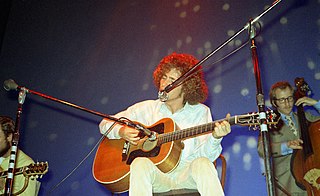
Timothy Charles Buckley III was an American musician. He began his career based in folk rock, but subsequently experimented with genres such as psychedelia, jazz, the avant-garde, and funk paired with his unique five-octave vocal range. His commercial peak came with the 1969 album Happy Sad, reaching No. 81 on the charts, while his experimental 1970 album Starsailor went on to become a cult favorite. The latter contained his best known song, "Song to the Siren." Buckley died at the age of 28 from a heroin and morphine overdose, leaving behind sons Taylor and Jeff.
In music, montage or sound collage is a technique where newly branded sound objects or compositions, including songs, are created from collage, also known as Musique concrète. This is often done through the use of sampling, while some sound collages are produced by gluing together sectors of different vinyl records. Like its visual cousin, sound collage works may have a completely different effect than that of the component parts, even if the original parts are recognizable or from a single source. Audio collage was a feature of the audio art of John Cage, Fluxus, postmodern hip-hop and postconceptual digital art.

The Incredible String Band were a British psychedelic folk band formed by Clive Palmer, Robin Williamson and Mike Heron in Edinburgh in 1966. The band built a considerable following, especially in the British counterculture, notably with their albums The 5000 Spirits or the Layers of the Onion (1967), The Hangman's Beautiful Daughter (1968), and Wee Tam and the Big Huge (1968). They became pioneers in psychedelic folk and, through integrating a wide variety of traditional music forms and instruments, in the development of world music.

A Night at the Opera is the fourth studio album by the British rock band Queen, released on 21 November 1975 by EMI Records in the United Kingdom and Elektra Records in the United States. Produced by Roy Thomas Baker and Queen, it was reportedly the most expensive album ever recorded at the time of its release.

Unfinished Music No. 2: Life with the Lions is the second of three experimental albums of avant-garde music by John Lennon and Yoko Ono, released in May 1969 on Zapple, a sub label of Apple. It was a successor to 1968's highly controversial Unfinished Music No. 1: Two Virgins, and was followed by the Wedding Album. The album peaked in the United States at number 174, 50 places lower than the previous album. The album, whose title is a play on words of the BBC Radio show Life with The Lyons, was recorded at Queen Charlotte's Hospital in London and live at Cambridge University, in November 1968 and March 1969, respectively. The Cambridge performance, to which Ono had been invited and to which she brought Lennon, was Lennon and Ono's second as a couple. A few of the album's tracks were previewed by the public, thanks to Aspen magazine. The album was remastered in 1997.
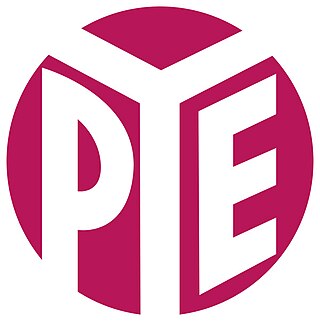
Pye Records was a British record label. Its best known artists were Lonnie Donegan (1956–1969), Petula Clark (1957–1971), the Searchers (1963–1967), the Kinks (1964–1971), Sandie Shaw (1964–1971), Status Quo (1968–1971) and Brotherhood of Man (1975–1979). The label changed its name to PRT Records in 1980, before being briefly reactivated as Pye Records in 2006.
Psychedelic folk is a loosely defined form of psychedelia that originated in the 1960s. It retains the largely acoustic instrumentation of folk, but adds musical elements common to psychedelic music.
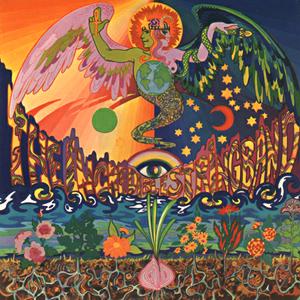
The 5000 Spirits or the Layers of the Onion is the second album by the Scottish psychedelic folk group the Incredible String Band (ISB). It was released in July 1967 on Elektra Records. The album was recorded following the reformation of the band as a duo consisting of Robin Williamson and Mike Heron. Notably, the album was a change in musical direction for the two as they transitioned from their more conventional folk music structures into complex psychedelic compositions influenced by British folk and Indian music.
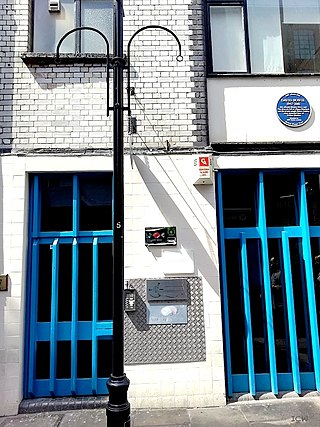
Trident Studios was a British recording facility, located at 17 St Anne's Court in London's Soho district between 1968 and 1981. It was constructed in 1967 by Norman Sheffield, drummer of the 1960s group the Hunters, and his brother Barry.
Earth Opera was an American psychedelic rock group, active between 1967 and 1969 and featuring Peter Rowan and David Grisman.
Ultimate Spinach was a short-lived American psychedelic rock band from Boston, Massachusetts which was formed in 1967. In terms of style and national recognition, the band was one of the most prominent musical acts to emerge from the "Bosstown Sound", which was a marketing campaign posing as a regional attempt to compete with the San Francisco Sound. During the group's existence, they released three albums, with their self-titled debut the most commercially successful.

Jay Berliner is an American guitarist who has worked with Harry Belafonte, Ron Carter, Charles Mingus, and Van Morrison, among others.
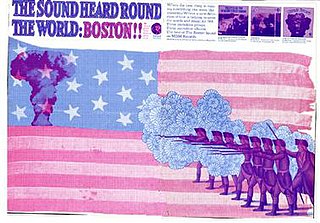
The Bosstown Sound was the catchphrase of a marketing campaign to promote psychedelic rock and psychedelic pop bands in Boston, Massachusetts, in the late 1960s. The concept was conceived by the record producer Alan Lorber as a marketing strategy intended to establish several underground musical artists native to the city on the national charts and compete with the popular San Francisco Sound. Lorber chose Boston for his plan because of the several bands developing in the city, the abundance of music venues, and the proximity of MGM Records, which had signed the core groups.
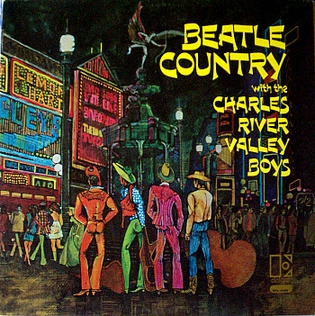
Beatle Country is the fourth and final studio album by the American bluegrass band Charles River Valley Boys, released in November 1966 by Elektra Records. Where the Charles River Valley Boys' previous albums consisted of traditional and new bluegrass and some early country songs, Beatle Country contains only covers of the Beatles. The band and several session musicians completed the album at Columbia's studio in Nashville, Tennessee, across four days in September 1966. Paul A. Rothchild and Peter K. Siegel produced the album, with Glenn Snoddy as audio engineer.
Elektra Sound Recorders was Elektra Records's recording studio in Los Angeles, California, United States located at 962 La Cienega Boulevard. Electric Entertainment currently provides video production services at this location.

Transformer is the only album by American musician David Stoughton, released in December 1968 by Elektra Records. Produced by Stoughton, the album is a mix of folk and pop songwriting with sound collages and musique concrète. The musician had drawn influence from composer John Cage and created the group The Cambridge Electric Opera Company to explore electronic and traditionally-based music; although the group perform on the album, it was credited to Stoughton alone to avoid confusion with fellow Elektra band Earth Opera.












